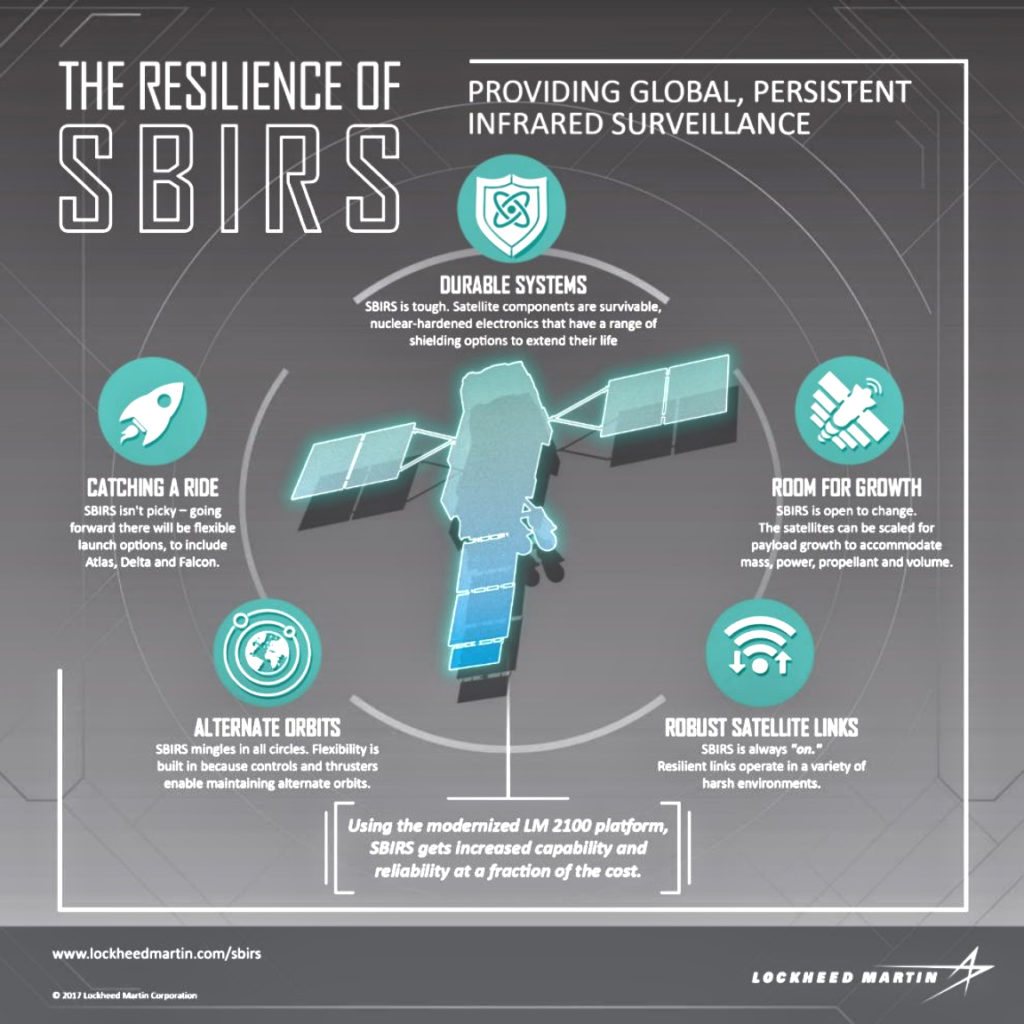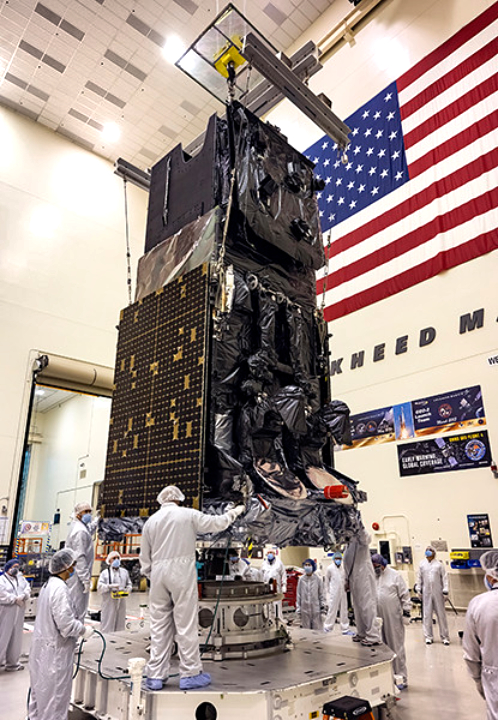
Lockheed Martin has received a five-year, $1 billion contract that calls for their services to support the ground control systems of the Space Based Infrared System (SBIRS) satellite constellation.
Under the terms of the contract, Lockheed will operate and maintain the SBIRS centers at Buckley Space Force Base, Peterson Air Force Base and Greeley Air National Guard Station, according to sources.
Rob Walker, Lockheed’s director of overhead persistent infrared operations and sustainment, said that the billion-dollar deal provides for logistics support and upgrades that are needed to operate the last two SBIRS satellites.

SBIRS GEO-5, the penultimate addition to the constellation, was deployed in geosynchronous orbit on May 18 via an Atlas V rocket that lifted off from Cape Canaveral Space Station in Florida. A sixth and final SBIRS satellite is currently under development. The SBIRS GEO-6 is being built using the new LM 2100 combat bus and is projected to launch in 2022.

SBIRS has been operational since 2011 and the satellites provide long-range surveillance and target detection to assist in carrying out missile warning, missile defense, technical intelligence and battlespace awareness missions. A new missile warning constellation called Next-Generation Overhead Persistent Infrared is already under development to replace SBIRS.
Lockheed is one of the prime contractors for the Next-Gen OPIR satellites and the firm has recently been awarded a $4.9 billion contract to build the first three satellites in the constellation that will be deployed in GEO. Northrop Grumman was also awarded a $2.4 billion contract to initiate the design of two, additional, Next-Gen OPIR satellites for polar coverage.
